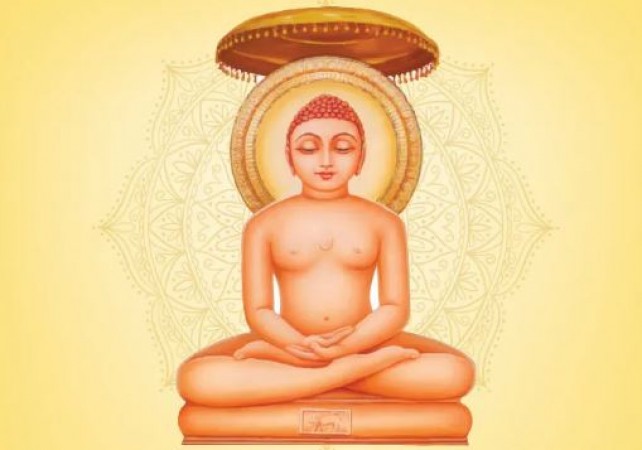
The 24th Tirthankar of the Jain religion was Lord Mahavir. All Tirthankars were born as humans, but through self-realization and meditation, they have acquired a level of perfection or enlightenment. They are the Jains' deities. Arihants and Jinas are other names for Tirthankars.
Tirthankara - One who establishes the fourfold order (Monk, Nun, Layman, and Laywoman) of religion.
Arihant - One who destroys his inner enemies like anger, greed, passion, ego, etc.
Jina - One who conquers his inner enemies like anger, greed, passion, ego, etc. The followers of Jina are known as Jains.
Mahavir was born in Bihar, India, in 599 B.C. as a royal. He left his family and the royal household at the age of 30 gave up his material things, including his clothes, and became a monk.
Also Read: Chorasi Mahadev: Unveiling the Sacred Abode of 84 Mahadevas
To control his urges and emotions, he spent the following twelve years in intense quiet and meditation. He went for extended periods without eating. He took care not to disturb or hurt any other living things, such as plants, birds, or animals. His methods of meditation, days of fasting, and manner of conduct serve as a lovely model for monks and nuns engaged in religious life. He spent twelve years on his spiritual quest. He had grasped the perfection of perception, wisdom, power, and happiness. This epiphany is referred to as keval-jnana.
He traveled barefoot for the next thirty years, teaching the populace the timeless truth he had discovered. Rich and poor, monarchs and commoners, men and women, princes and priests, touchable and untouchables—he attracted people from all walks of life.
He set up a four-fold order for his adherents, consisting of a monk (Sadhu), a nun (Sadhvi), a layperson (Shravak), and a laywoman (Shravika). They eventually become known as Jains.
Also Read: Famous Jain Temples To Visit
The ultimate goal of his teachings is to show students how to completely release themselves from the cycle of birth, life, suffering, and death to arrive at a state of perpetual joy. This is also referred to as Moksha, nirvana, or complete freedom.
He said that every living thing (soul) has been bound by karmic atoms from the beginning of time, which have accumulated as a result of its own good or bad activities. The soul develops the habit of seeking pleasure in materialistic commodities and possessions under the influence of karma. Those are the underlying reasons for selfish, violent thoughts, actions, wrath, hatred, greed, and other vices. More karma is accumulated as a result of them.
He advocated for the combination of correct belief (samyak-darshana), right knowledge (samyak-jnana), and right conduct (samyak-charitra) to achieve one's emancipation.
Also Read: Gomatgiri: Discovering Serenity and Spiritual Bliss
At the heart of right conduct for Jains lie the five great vows:
Nonviolence (Ahimsa) - not to cause harm to any living beings
Truthfulness (Satya) - to speak the harmless truth only
Non-stealing (Asteya) - not to take anything not properly given
Chastity (Brahmacharya) - not to indulge in sensual pleasure
Non-possession/Non-attachment (Aparigraha) - complete detachment from people, places, and material things.
Also Read: Hinkargiri in Indore: Exploring the Pristine Peak
These vows are fundamental to the life of Jains. The common people attempt to uphold the vows to the extent that their lifestyles will allow, while monks and nuns adhere to them fully and completely.
When Lord Mahavir passed away at the age of 72 (527 B.C. ), his cleansed spirit departed the body and attained total emancipation. He evolved into a Siddha, a pure mind and freed soul who lived forever in unbounded happiness. People celebrated the Festival of Lights (Dipavali) in his honor on the eve of his redemption.